by Beemo
Posted on 07-Oct-2022
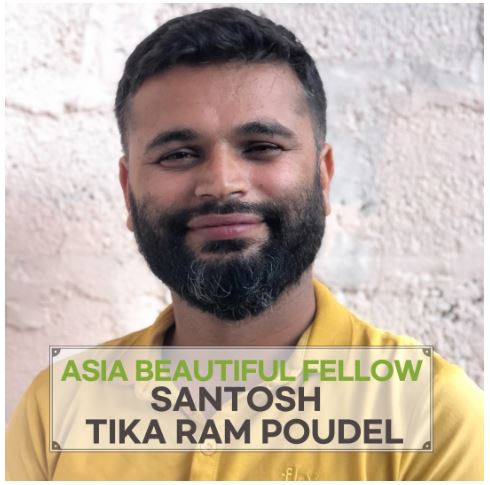
The Fellow Story #2_Santosh Tika Ram Poudel, the social innovative leader of Nepal
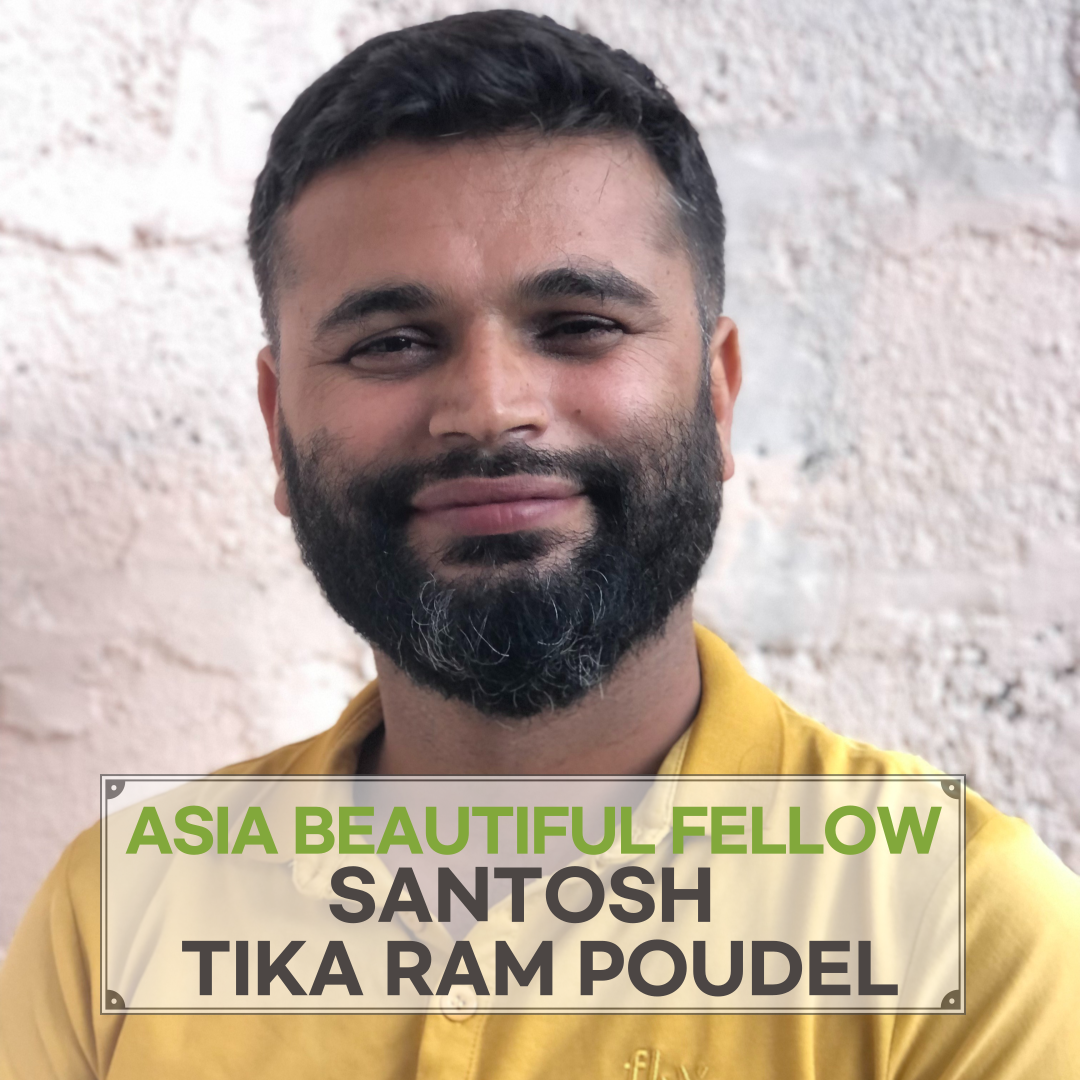
|
Asia Beautiful Fellowship program helps to alleviate the climate crisis by finding social entrepreneurs with effective solutions in Asian developing countries and supporting them in various ways to make the impact they create sustainably.
|
Even now, two years after the COVID-19 pandemic, many people around the world are still struggling. Wearing a mask and using hand sanitizer has become part of our daily routine. Meanwhile, due to the pandemic, the earth is suffering as the amount of discharge from disposable waste to medical waste has increased tremendously. Especially in the case of medical waste, if it is not properly classified, it can contaminate general waste, which is causing more problems. Developing countries with insufficient waste treatment systems have difficulties in managing them. Nevertheless, there are people who are constantly working to solve this problem!
The second Asia Beautiful Fellow is Tika Ram Poudel (Santosh), actively working to solve the healthcare waste problem in Nepal.
To find out more about Asia Beautiful Fellow’s background, selection process, and application benefits, please click on the link below!
https://globalsec.beautifulstore.org/1st_ws

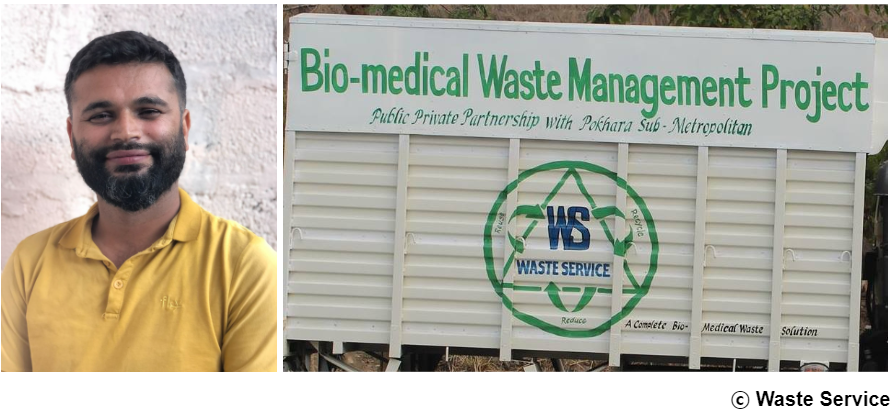
Waste Service, established by Santosh, is based in Pokhara and is the only private medical waste disposal organization in Nepal! They are contributing to resolving the climate crisis by improving the medical waste management environment through hospital consulting, collecting medical waste from hospitals, medical laboratories, and research facilities, and safely disposing of waste through high-temperature and high-pressure processes. Furthermore, they are collaborating with local governments and other organizations to create an efficient and sustainable medical waste management model!
Santosh, who has been conducting environmental campaigns and awareness-raising activities since he was a student, said that he thought the waste problem was the most serious of all environmental problems. The reason he started the general waste management business 15 years ago was that he thought “management of spilled waste is an important issue that needs to be addressed first for environmental protection.” In the case of underdeveloped countries, including Nepal, medical waste is burned at inappropriate temperatures or illegally dumped due to the lack of waste management infrastructure, which poses a threat to both people and the environment. As medical waste such as syringes, needles, and broken glass bottles are mixed with general waste and collected, people are inevitably exposed to various risks such as getting injured or infected with diseases.
Santosh decided to solve this problem because it also worsens environmental pollution by being landfilled or incinerated without any special treatment process. So, he started the Waste Service, which specializes in the treatment of medical waste 5 years ago!
Santosh is actively participating in overseas programs in Bangladesh, Switzerland, the Netherlands, and the United States to learn the medical waste management system and environmental consulting. To create a safe and systematic medical waste treatment system in Nepal.
So, why is Santosh trying to solve Nepal's medical waste problem?

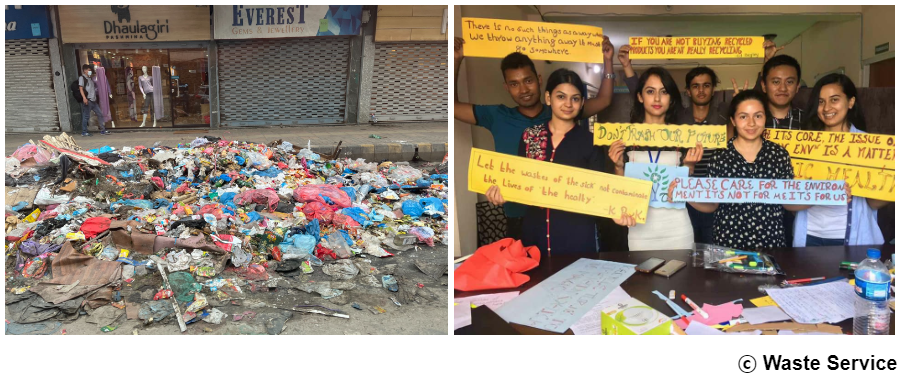
Nepal is ranked 4th among the countries most vulnerable to the impacts of climate change. (Maplecroft, 2010). In fact, Nepal is already experiencing changes in temperature and precipitation at a faster rate than the global average, putting millions of people at risk of declining agricultural production, food insecurity, water scarcity, forest and biodiversity loss, and infrastructure damage. (USAID, 2017). Also, environmental health is very poor. Air and water quality are one of the important indicators of environmental health. According to the study, Nepal's greenhouse gas emission has increased by about 250% since 2010, and in the newly released Environmental Performance Index this year, Nepal was ranked 170th out of 180 countries in the field of environmental health(EPI, 2022).
In Nepal, the damage caused by climate change is huge, but there are also many problems caused by an insufficient waste treatment system. 16 million people are living in Nepal's urban areas alone and generating about 4,900 tons of solid waste every day(World Bank, 2021), but it is said that waste is managed in very poor ways. Pokhara, Nepal's second-largest city, also generates 182.5 tonnes of solid waste every day, but there are only seven waste collection companies(World Bank, 2021). Among them, Waste Service is the only company in charge of medical waste. In many medical institutions, wastes with a risk of infection are incinerated in the open air or thrown away without permission in hospital backyards, rivers, fields, etc (Mohp, 2014). Infectious medical waste is mixed with general waste to generate more hazardous waste, which has a more adverse effect on soil and groundwater pollution as well as air. Moreover, it can cause direct harm to people, making it even more dangerous. In fact, in the western part of Nepal, a study found that 70% of health workers and 63% of non-medical workers were stabbed by needles or sharp waste(Mohp, 2014).
Although the government of Nepal is preparing waste-related policies and guidelines and taking measures, interest in the medical waste problem is still not high. So, the role of Santosh and Waste Service in collaborating with local governments to create a new system in the local community is very special!

? Medical waste collection service
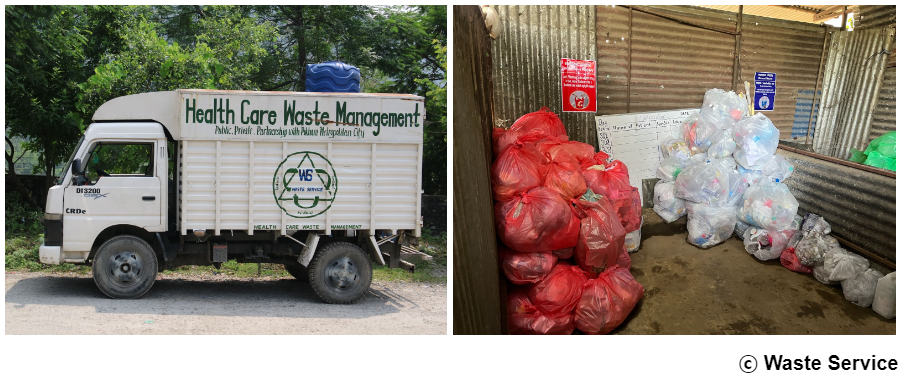
Santosh provides medical waste collection services to hospitals and research institutes in Pokhara. Waste Service is the only private company in Nepal that specializes in collecting medical waste! Two dedicated trucks collect an average of 5 tons of medical waste every day. Hospitals that have received the service have a high level of satisfaction and tend to contract consistently. Depending on the amount of waste generated, visits are made every day or once a week or two days. In particular, large hospitals are said to be managing intensively because they generate a lot of waste.
? Medical waste consulting
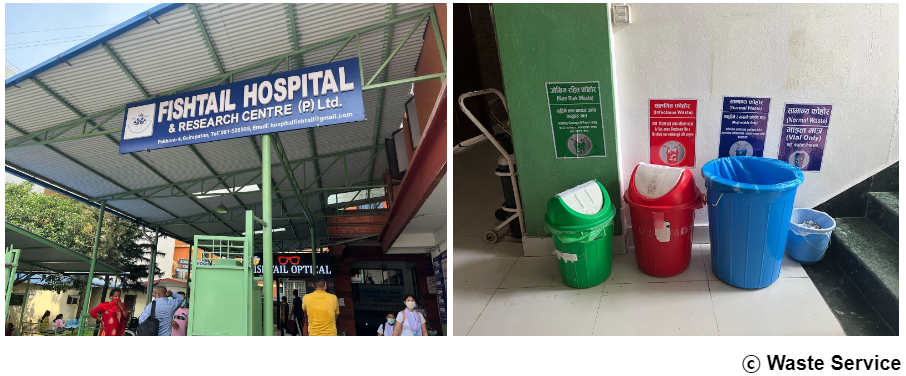
They provide consulting as well as collection services to hospitals and other places where medical waste is generated. In accordance with Nepal's 'The National Health Care Waste Management Guidelines' and the WHO (World Health Organization) guidelines, they are teaching how to manage medical waste in an appropriate and systematic way. Consultants affiliated with the Waste Service explain the standards and procedures for handling medical waste, and establish a system that separates medical waste related to medical devices and medicines from general waste discharged by patients in the hospital. In addition, they teach how to reduce waste and how to remove and separate the syringe needle! So far, 45 hospitals in Pokhara and 15 hospitals in the western region have provided consulting services. Although foreign organizations provide medical waste management consulting, they usually focus on projects in one hospital. Therefore, the role of the Waste Service, which builds a system throughout the region and provides consulting for hospitals of various sizes, is very important!
? Safe disposal of medical waste
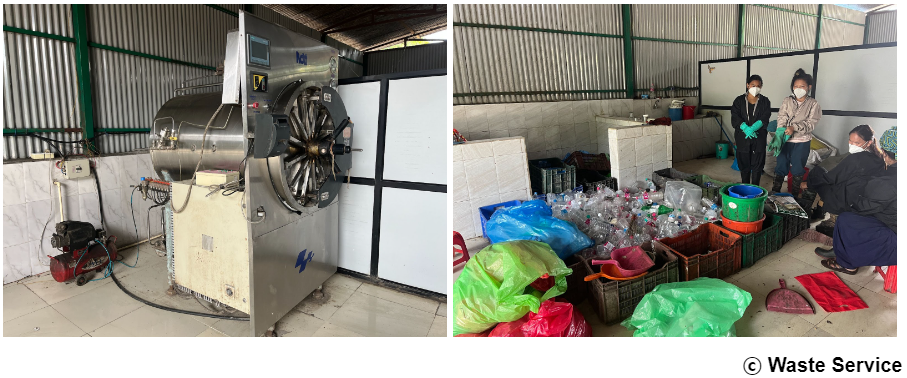
Unlike general medical waste dumping in mountains or rivers and incineration in Nepal, Santosh introduced high-temperature and high-pressure sterilization processes to minimize waste and safely dispose of it. All waste is sorted at the Waste Service's Central Treatment Facility, located right next to the Pokhara Municipal Landfill Site. The collected medical waste is sterilized by autoclave before sorting. This not only reduces further pollution but also helps to increase the recycling rate of medical waste. Cleanly treated medical waste is regenerated into black pipes, which are usually used as building materials. Because there is a lot of plastic, about 70-75% is recycled and the rest goes to landfills safely and sterilized. Also, the classification task is mainly carried out by women from marginalized groups in the region. Reducing environmental pollution through safe treatment of medical waste, creating jobs for women from the underprivileged, and increasing the recycling rate of medical waste! Such a great butterfly effect, isn't it?
Santosh is establishing various governance arrangements with not only hospitals receiving services, but also with local governments, organizations such as GIZ and UNDP. Let’s hear the stories of those who are working together to make a difference in Nepal!

|
Local Government Official, Kalpana
Santosh is a responsible and passionate entrepreneur. Especially while running a waste-related business, Santosh is the only one that informs governments of new technologies and helps make policies. The local government also entrusted him to lead community training for women and households, from how to make organic fertilizer to how to reduce, reuse and sort waste. In Pokhara, there are 6 other places to collect general waste besides the Waste Service, but there are fewer workers and fewer experts. Santosh also participated in a workshop in 2011 when the local government invited Bangladeshi waste management experts. To this day, we continue to communicate and help each other. |
|
Consultant, Depak
|
|
Fishtail Hospital officials, Madhu and Pratima
After consulting with Waste Service, we are very satisfied with it, so we have been receiving services since 2017. Five years ago, there was no place that provided such a service, so the hospital had to manage its own waste. We hired a manager to collect and sort the waste in one place, but it didn't go well. It wasn't easy. After receiving the waste separation education and consulting from the Waste Service, we got a lot better. From an economic point of view, the cost of disposing of medical waste has been reduced, which is satisfactory. Whenever we have a problem, we call the Waste Service right away, and it's nice to have the right guide at any time. When Covid-19 spread, we asked how to deal with Covid-19-related waste at the hospital, and they gave Covid-19 guidelines and told us how to manage it. In particular, we had a lot of trouble because the amount of waste increased tremendously because we used masks and gloves a lot, but the Waste Service gave us a lot of advice. According to the guidelines of the Waste Service, medical waste related to Covid-19 was managed in a separate section, and thanks to this, we were able to handle it safely. When we receive consulting, they tell us various things besides how to reduce waste. For example, in the past, the needles of syringes were treated without being separated, causing a strong odor and many complaints from patients, but after consulting, they were separated. Sharp waste can be disposed of in bins so that waste can be safely transported. And we separate general waste from infectious waste, and we don't burn needles like in the past. Waste Service allows us to dispose of waste without burning it anymore. We think it will definitely have a better impact on the environment. Medical waste management is a very important issue worldwide. We believe that even in one hospital, if we act differently, we can make a difference. Our hospital is also working hard to make a new change in Nepal. In that regard, the education of the Waste Service is very helpful. It's not a one-time thing, it's constantly introducing new content. After receiving the training, training is also conducted inside the hospital. Thanks to this, all the staff at the hospital know how to separate medical waste. It's not easy, but nurses and practical students alike are working on it. It is a problem that visitors do not separate and dispose of infectious waste, but this is changing little by little through education. |
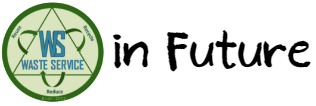
Expansion of Central Treatment Facility (CTF)
By adding CTFs in two cities, Santosh plans to provide collection services and consulting services to more hospitals. Currently, all services are concentrated in Pokhara, where Waste Service is located, but in the future, services will be available in other areas. To this end, a team of experts will be developed, and training will be provided for employees to strengthen their capabilities. In addition, there is a plan to find other local governments that can form partnerships, such as the current public-private cooperation system with the Pokhara city government.
? Raising awareness of Health Care Waste Management
The government of Nepal has created ‘Standard Operating Procedure 2020 for Healthcare Waste Management’. Santosh hopes to promote a safe working environment by encouraging more stakeholders to follow these procedures. Also, he is planning a campaign to raise stakeholder awareness of medical waste by using the ‘3R principle—Reduce, Reuse, Recycle’!
Expansion of jobs for disadvantaged women
Currently, they are conducting vocational training to support vulnerable women, and they are working together to sort sterilized waste. In the future, in relation to waste management, they plan to provide more vulnerable women with jobs and support the development of their vocational skills! To this end, they will be looking for experts and policymakers as well as other investors and entrepreneurs to partner with and work with!
So far, you have met the story of Santosh, who is paving a new path in Nepal's medical waste management field! He said that he would like to expand the business in the future to solve the medical waste problem not only in Pokhara but also in more regions of Nepal. As a huge amount of medical waste is pouring out every day due to Covid-19, the role of the Waste Service, giving people direction, is very important.